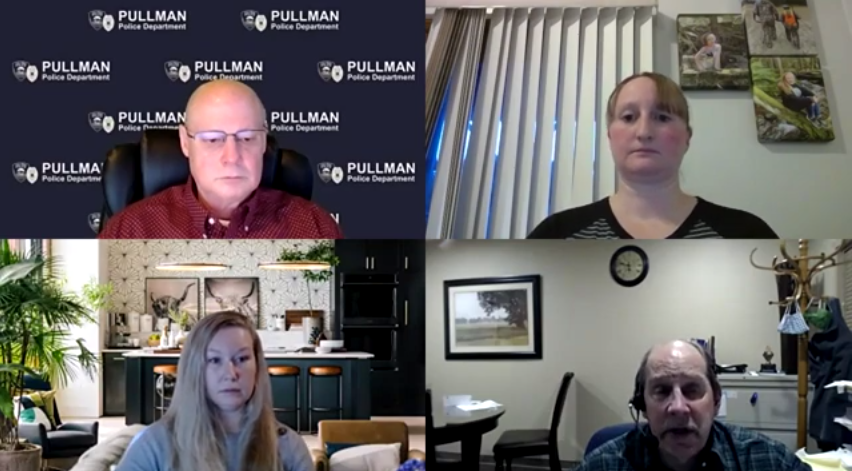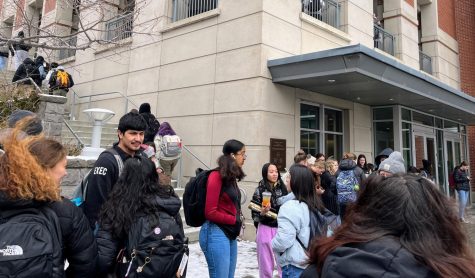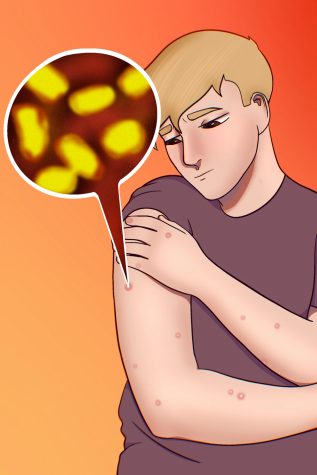Palouse River Counseling shares COVID-19 mental health impacts
Washington is in bottom third of available psychiatric beds; Pullman PD saw 450 percent increase in mental health crisis calls from 2018 to 2020
Palouse River Counseling provides crisis debriefs for first responders and gives feedback to Pullman Public Schools to help both teachers and students.
March 10, 2021
Mike Berney, Palouse River Counseling executive director, spoke to the Pullman Police Advisory Committee on March 8 about the mental health impacts of COVID-19.
Washington is in the bottom third in the country of available psychiatric beds per 100,000 people, Berney said. PRC has been paying attention to this because having available care is a necessity.
The behavioral health system, in general, has been significantly underfunded for quite a while, which also has a significant impact on police officers, he said.
There are various challenges that come with being in a rural community, Berney said. One challenge is not having the ability to attract professionals and keep them for a long period of time.
For many months at the beginning of the pandemic, the state was anticipating a large increase in the demand for behavioral health services. This typically occurs in disaster situations, like the COVID-19 pandemic, Berney said.
Pullman Police Chief Gary Jenkins said the numbers of crisis calls were consistent up through 2018. There were about 50 to 60 calls a year then that involved some kind of mental health crisis. In 2019, the calls jumped to 150 per year, Jenkins said. Then, in 2020, the number jumped to 300.
From 2018 to 2020, Pullman Police Department saw a 450 percent increase in calls involving a mental health crisis, he said.
Each call would take about 30 to 45 minutes, Jenkins said. Multiplying that number by 300 times a year means it can take a lot of staff time especially when there are about two to three officers on duty.
There are not enough resources for follow-up care for the individuals Pullman PD sees, and they constantly see them, he said. It becomes a vicious circle.
Berney said there are also not enough counselors to provide services people need. There have been about 25 to 35 requests for services per week, he said.
The pandemic has affected staff as well. Counselors have their own counselors as a way to debrief and develop skills to cope, he said.
PRC provides crisis debriefs for first responders and gives feedback to Pullman Public Schools to help both teachers and students, he said.
Currently, if law enforcement comes across someone who meets the criteria to be taken into protective custody, they will take the person to Pullman Regional Hospital. Then there will be an assessment to figure out the behavioral health care the person may need, he said.
PRC is part of the Whitman County Suicide Prevention and Resiliency Task Force, Berney said. The task force has an initiative called “Practice the Pause,” which is a community-based flexible process to help people in the Palouse region practice emotional coping skills in helpful ways.
Community-based intervention is what it will take to work through this process, he said.
The next Pullman Police Advisory Committee meeting will occur from 5:30-7 p.m. on April 12 via Zoom.


















